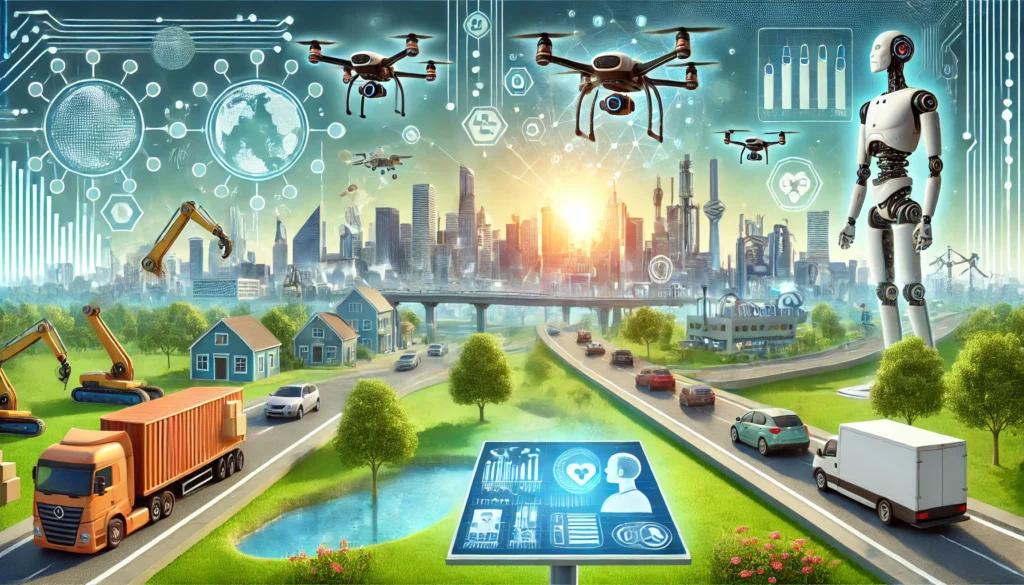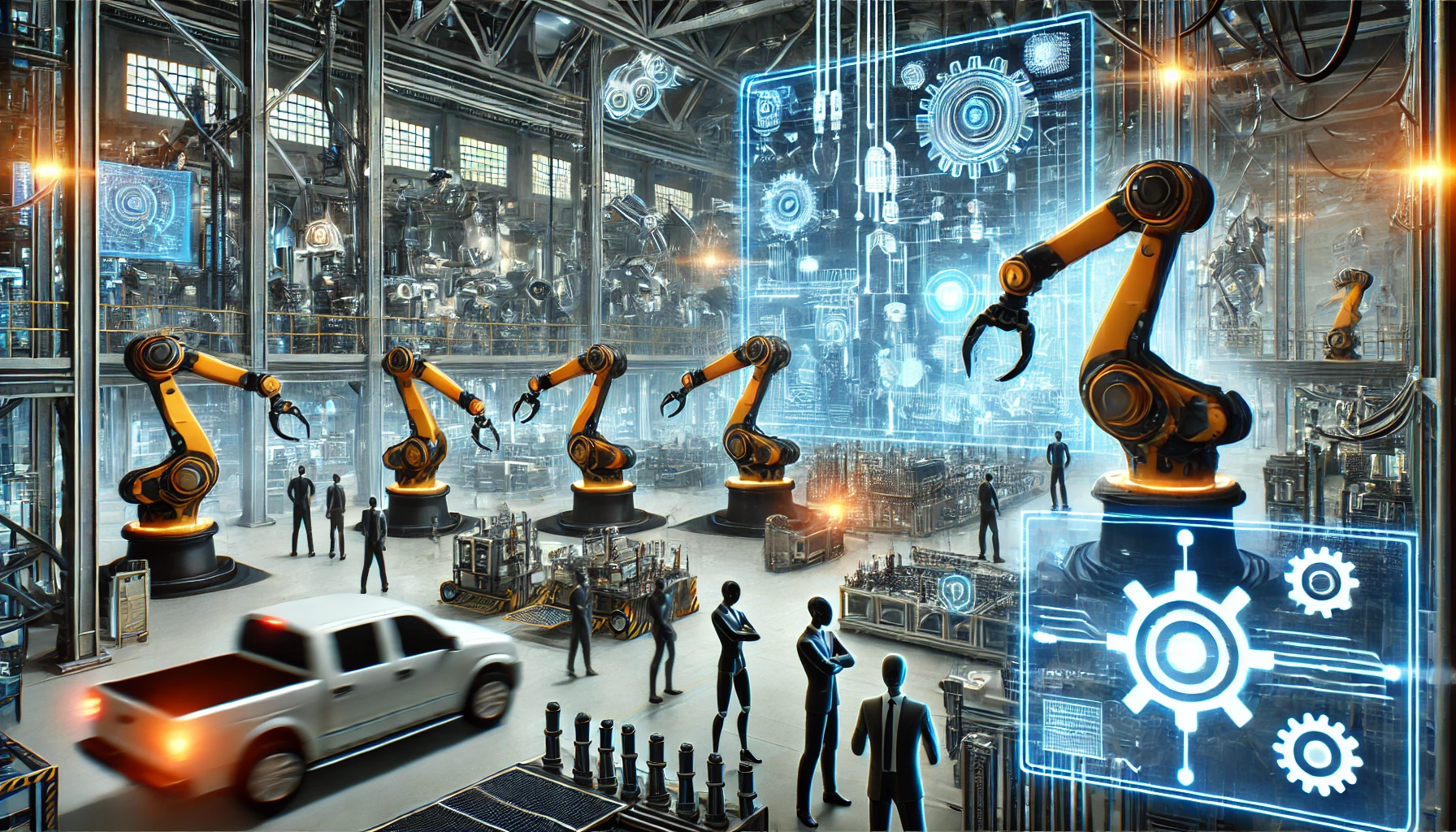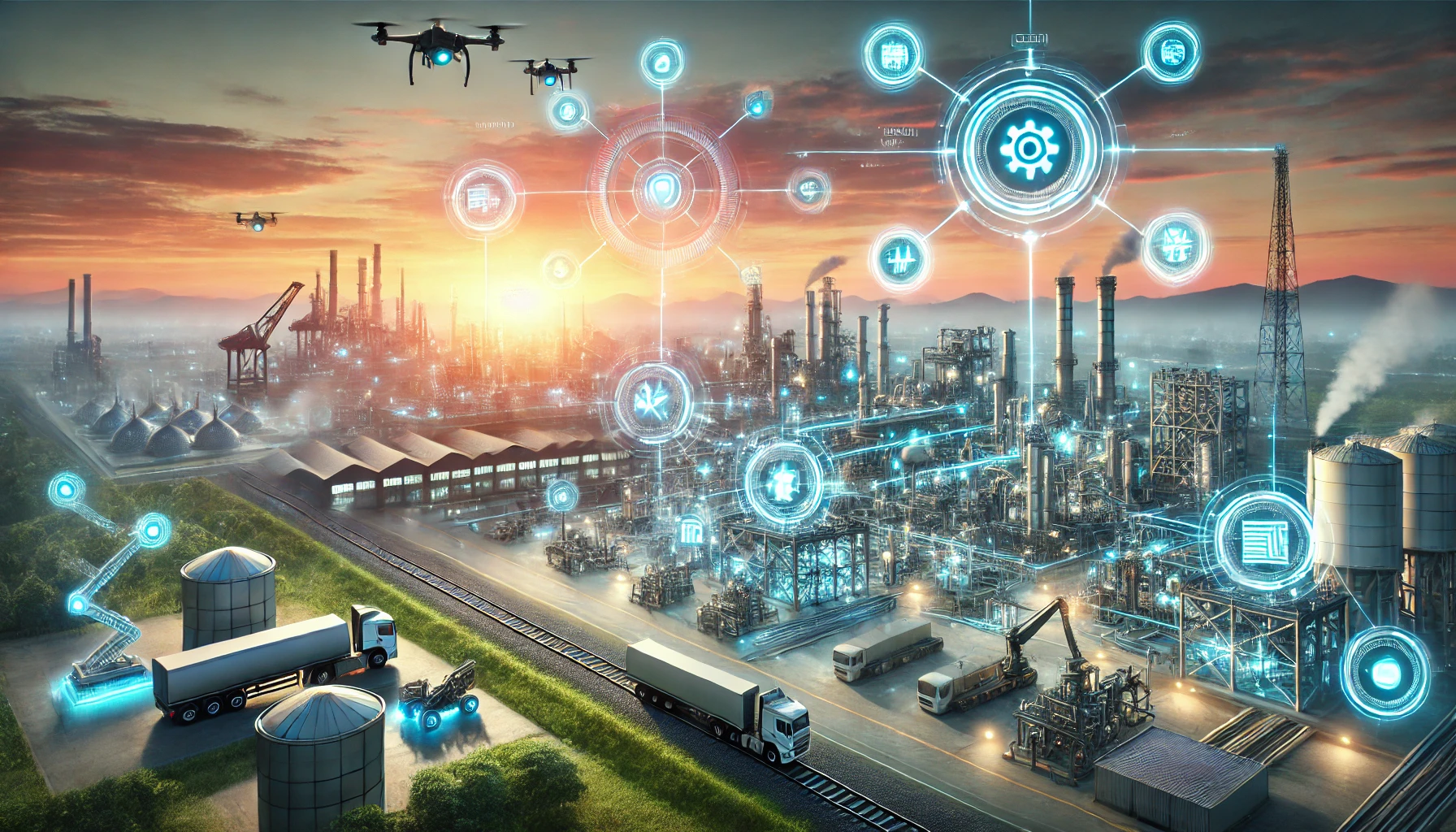Automation is transforming industries across the globe, revolutionizing how businesses operate and unlocking untapped potential. When you automate an industry, it creates ripple effects that enhance productivity, streamline processes, and foster innovation. This article delves into the challenges, benefits, and future prospects of industry automation, shedding light on what it truly means to embrace this technological shift.
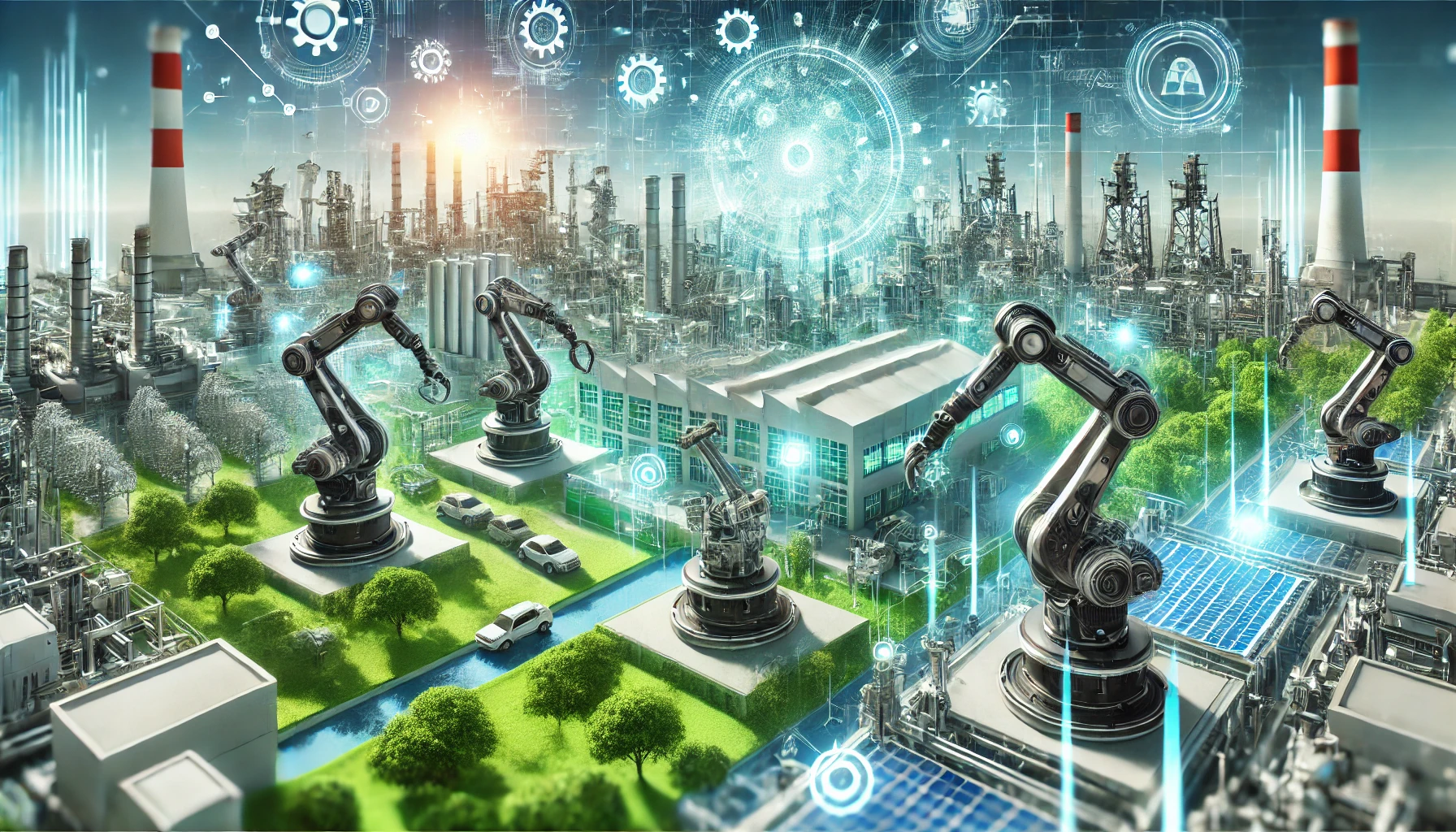
Understanding Industry Automation
Defining Automation in Modern Industries
Automation involves leveraging technology to perform tasks with minimal human intervention. From manufacturing to healthcare, automation has become a cornerstone of modern industries. Whether it’s robotic process automation (RPA) in administrative tasks or advanced machinery in factories, automation redefines how industries operate.
Evolution of Automation Over the Decades
The journey of automation began with basic machinery during the Industrial Revolution. Over decades, it evolved into sophisticated systems powered by artificial intelligence (AI) and the Internet of Things (IoT). Today, industry automation is no longer a luxury but a necessity, enabling companies to stay competitive in an ever-changing global market.
The Immediate Impacts of Automation on Industries
Operational Efficiency Boost
One of the first noticeable changes when you automate an industry is the dramatic improvement in operational efficiency. Tasks that once took hours can now be completed in minutes, reducing errors and optimizing resources. For example, automated inventory systems ensure accurate stock levels while saving time and labor costs.
Improved Customer Experiences
Automation also elevates customer experiences. Whether it’s personalized recommendations on e-commerce platforms or faster service delivery, automation enhances how businesses interact with their customers. In industries like retail and hospitality, automation provides seamless experiences that foster loyalty.
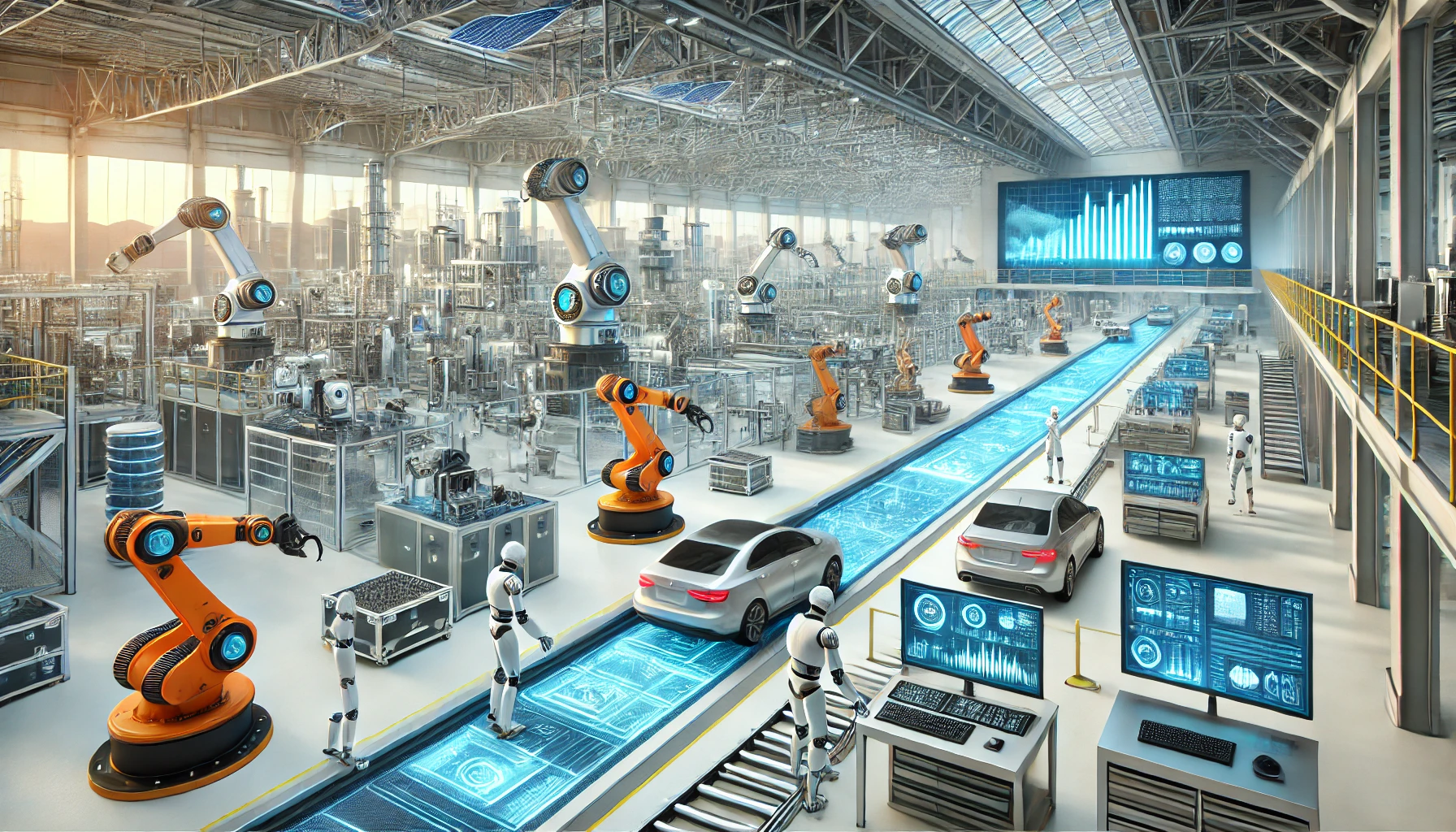
Why You Should Automate an Industry Today
Key Drivers of Industry Automation
Rising Competition in a Global Market
Globalization has intensified competition, compelling businesses to innovate continuously. When you automate an industry, you gain a competitive edge by improving productivity and reducing costs. Automation allows companies to scale operations and meet market demands efficiently.
Demand for Higher Quality Standards
Consumers today expect high-quality products and services. Automation ensures consistent output with minimal errors, meeting stringent quality standards. For instance, automated quality control systems in manufacturing detect defects with precision, ensuring superior product quality.
Benefits That Make Industry Automation Essential
Faster Time-to-Market for Products and Services
Automation accelerates production cycles, enabling businesses to bring products and services to market faster. This agility is crucial in industries like technology and fashion, where trends and consumer demands evolve rapidly.
Enhancing Decision-Making Through Real-Time Data
Modern automation tools provide real-time data analytics, empowering businesses to make informed decisions. For example, predictive maintenance systems in manufacturing analyze machinery performance, preventing downtime and ensuring uninterrupted operations.
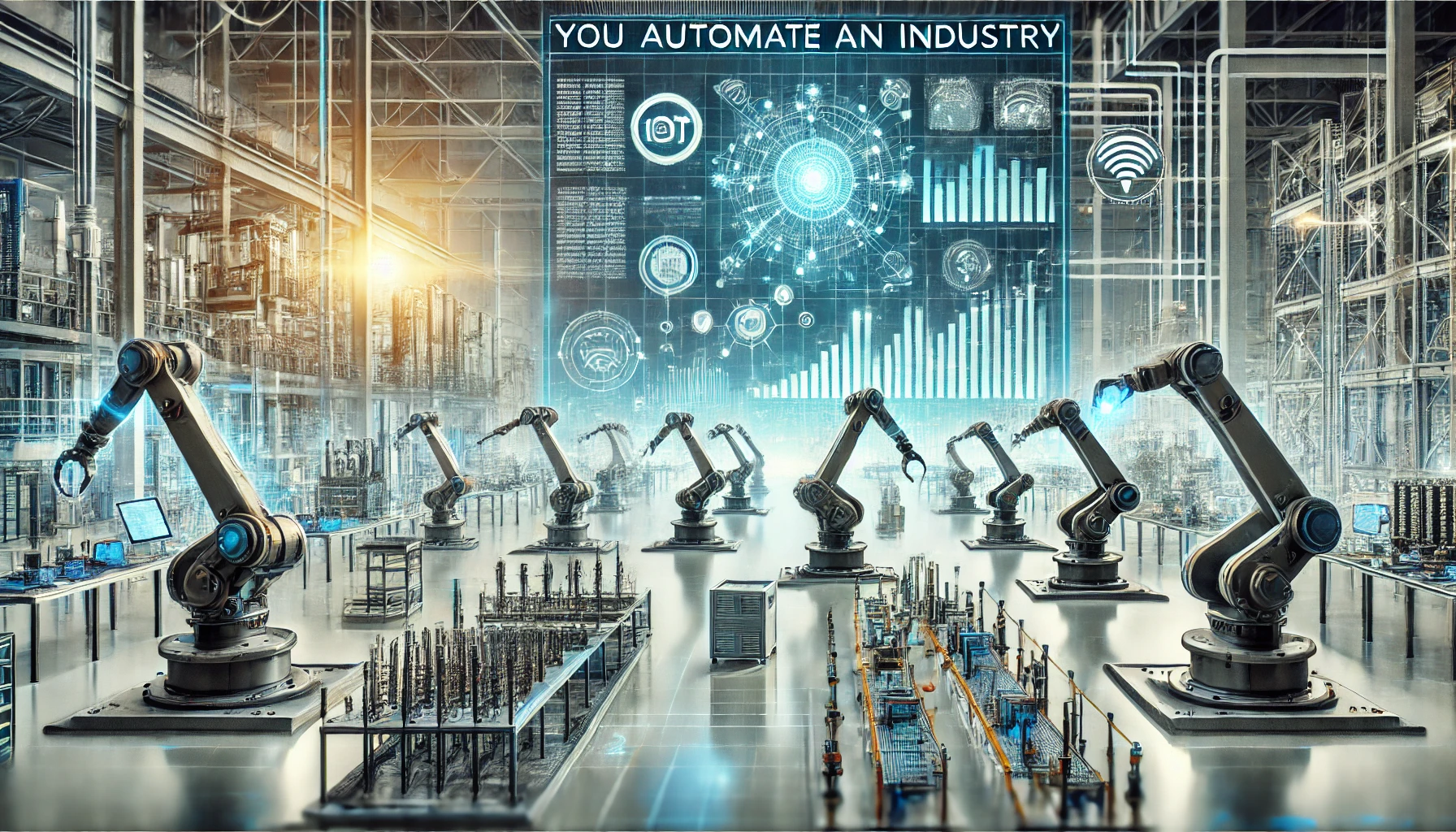
You Automate an Industry: A Strategic Approach
Developing a Comprehensive Automation Strategy
Assessing Current Industry Processes
Before implementing automation, it’s vital to evaluate existing processes. Identifying inefficiencies and bottlenecks helps determine where automation can have the most impact. This assessment lays the groundwork for a tailored automation strategy.
Setting Clear Goals for Automation
Clear objectives are essential when you automate an industry. Whether the goal is to reduce costs, enhance productivity, or improve customer satisfaction, aligning automation efforts with business objectives ensures successful implementation.
Tools and Technologies to Use When You Automate an Industry
Robotic Process Automation (RPA)
RPA automates repetitive tasks like data entry and invoice processing, freeing up human resources for more strategic roles. It’s a cost-effective solution for industries like finance and logistics.
Artificial Intelligence and Machine Learning
AI and machine learning power intelligent systems capable of learning and adapting. From chatbots in customer service to predictive analytics in healthcare, these technologies drive innovation and efficiency.
IoT (Internet of Things) for Smart Operations
IoT enables seamless connectivity between devices, creating smart operations in industries like agriculture and manufacturing. For example, IoT sensors monitor crop health, optimizing yields and reducing waste.
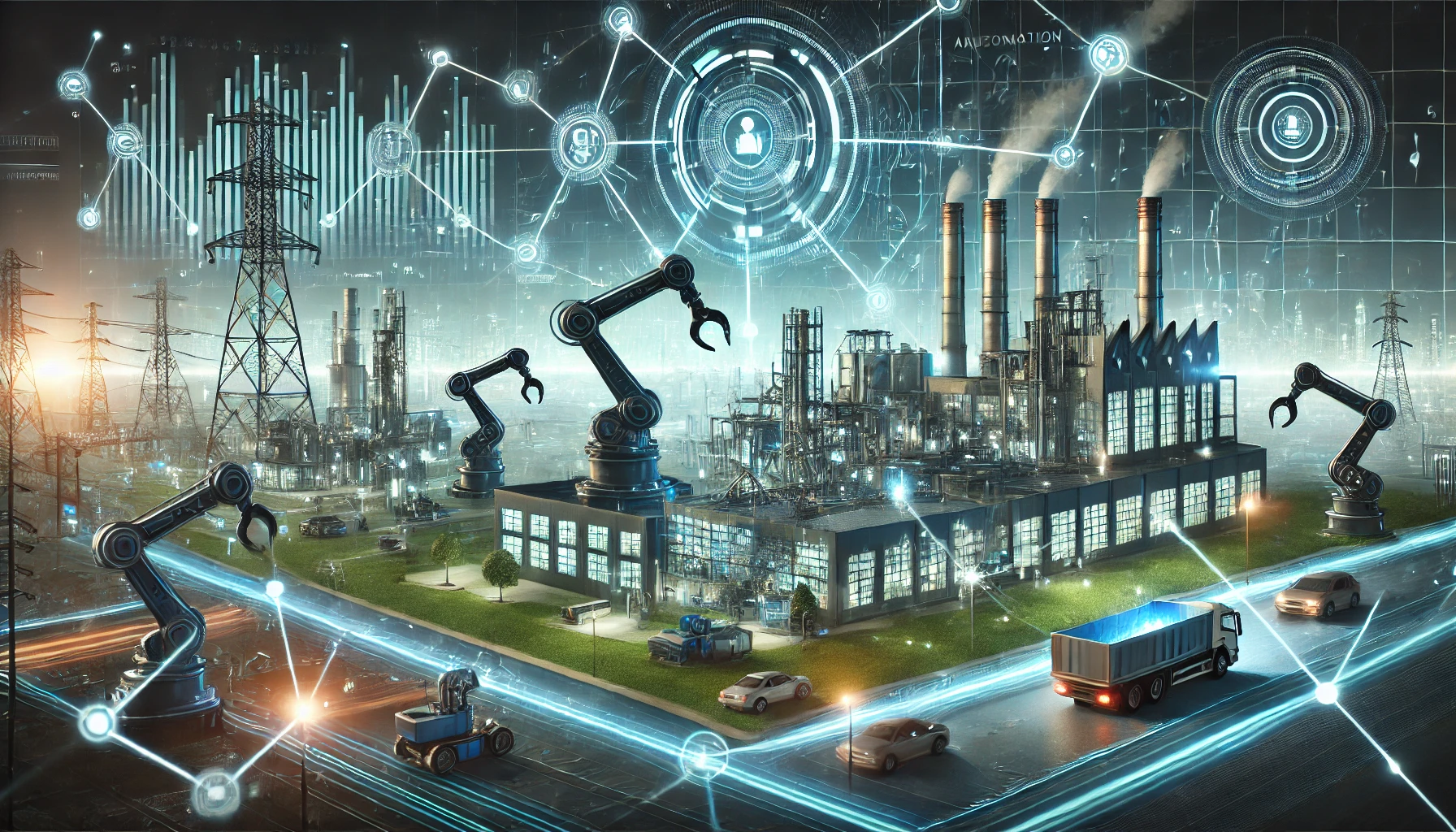
The Ripple Effect: When You Automate an Industry, You Modernize It
Transforming Business Models with Automation
Subscription-Based Models in Automated Industries
Automation facilitates subscription-based models, allowing businesses to offer continuous value to customers. For instance, automated billing systems enable software-as-a-service (SaaS) companies to provide seamless subscription experiences.
On-Demand Services and Personalization
Automation empowers businesses to offer on-demand services tailored to individual preferences. In the transportation industry, ride-hailing apps leverage automation to match drivers with passengers in real time.
Social and Economic Impacts of Industry Automation
Creating High-Skilled Job Opportunities
While automation replaces some manual tasks, it creates high-skilled job opportunities in areas like system management and data analysis. This shift requires workforce upskilling to meet the demands of an automated world.
Driving Economic Growth Through Innovation
When you automate an industry, you drive economic growth by fostering innovation. Automated industries often invest in research and development, creating groundbreaking solutions that benefit society as a whole.
Common Challenges You Face When You Automate an Industry
Technical Challenges in Implementing Automation
Integration with Existing Systems
One of the most significant hurdles is integrating automation technologies with existing systems. Legacy infrastructure often lacks compatibility with modern tools, leading to inefficiencies and increased costs. Businesses must invest in robust solutions that bridge these gaps, ensuring a smooth transition to automation.
Scaling Automation Solutions
Scaling automation across various departments or operations is another challenge. Small-scale implementations might work seamlessly, but expanding these solutions often reveals unforeseen issues. Organizations must adopt scalable technologies and flexible strategies to ensure consistency and reliability as they grow.
Human-Centric Challenges in Industry Automation
Addressing Fears of Job Displacement
When you automate an industry, fears of job loss often surface. Employees may worry about being replaced by machines, creating resistance to change. Transparent communication and proactive measures are essential to address these concerns, emphasizing how automation complements human roles rather than replaces them.
Ensuring Workforce Upskilling
Automation demands a workforce skilled in managing and maintaining advanced systems. Upskilling employees becomes crucial to bridging the knowledge gap. Companies must prioritize training programs and foster a culture of continuous learning to empower their teams for the future.
How When You Automate an Industry You Modernize It Further
Driving Sustainability with Industry Automation
Energy-Efficient Operations
Automation enables industries to optimize energy consumption, reducing their environmental footprint. Smart systems analyze usage patterns, ensuring energy is utilized efficiently without compromising productivity.
Minimizing Waste Through Smart Processes
Automated systems excel in waste management by identifying inefficiencies and implementing corrective actions. From reducing material wastage to streamlining production processes, automation drives sustainable operations.
Enhancing Global Collaboration Through Automation
Seamless Cross-Border Operations
Automation simplifies cross-border operations, breaking down geographical barriers. From real-time communication tools to synchronized logistics systems, automated processes foster global collaboration like never before.
Unified Supply Chains with Automated Systems
Automated systems unify supply chains, providing end-to-end visibility and control. Businesses can track inventory, manage orders, and predict disruptions, ensuring seamless operations across the value chain.
The Future of Automation: What Lies Ahead?
Emerging Technologies Shaping Industry Automation
Quantum Computing in Industrial Applications
Quantum computing is poised to revolutionize automation by solving complex problems at unprecedented speeds. Industries can leverage this technology for optimization, data analysis, and predictive modeling, unlocking new possibilities.
Autonomous Robotics Revolutionizing Manufacturing
Autonomous robots are transforming manufacturing processes, delivering unmatched precision and efficiency. These robots can work alongside humans, enhancing productivity and safety on the factory floor.
Preparing for a Fully Automated Industry Landscape
Building a Culture of Innovation
To thrive in an automated world, organizations must cultivate a culture of innovation. Encouraging experimentation and embracing cutting-edge technologies will position businesses as leaders in their industries.
Fostering Collaboration Between Humans and Machines
The future lies in harmonious collaboration between humans and machines. Companies must focus on designing systems that augment human capabilities, creating a symbiotic relationship that drives progress.
FAQs
What industries benefit the most when you automate an industry?
Industries such as manufacturing, logistics, healthcare, and finance see the most significant benefits. Automation streamlines repetitive tasks, improves accuracy, and accelerates processes, making these sectors more efficient.
What tools and technologies are critical when you automate an industry?
Key tools include artificial intelligence, machine learning, robotics, and IoT devices. These technologies enable data-driven decision-making, real-time monitoring, and seamless integration of automated systems.
How does automation affect employee roles and responsibilities?
Automation shifts employee roles toward strategic, creative, and supervisory tasks. By handling repetitive duties, automation frees up time for employees to focus on higher-value activities, enhancing job satisfaction and productivity.
Is automation the same as digital transformation?
While related, automation and digital transformation are distinct. Automation focuses on streamlining specific tasks or processes, whereas digital transformation involves a broader overhaul of an organization’s operations and culture to embrace digital technologies.
How does automation enhance sustainability in industries?
Automation promotes sustainability by optimizing resource usage, reducing waste, and improving energy efficiency. These systems enable businesses to meet environmental goals while maintaining profitability.
Conclusion
When you automate an industry, the possibilities are endless. Despite the challenges, automation drives modernization, sustainability, and global collaboration. As emerging technologies reshape the landscape, industries must embrace innovation and foster human-machine collaboration to unlock their full potential. By doing so, businesses can not only survive but thrive in an increasingly automated world.

